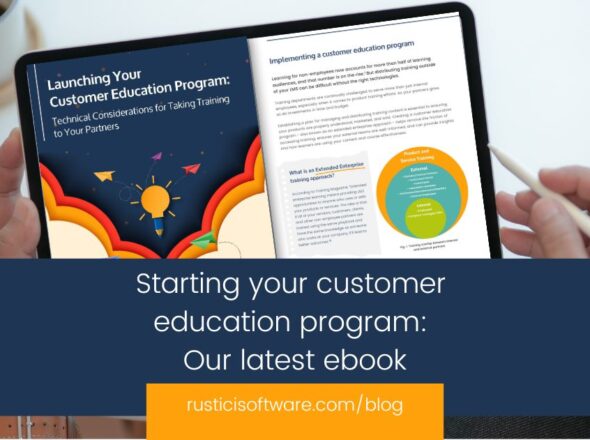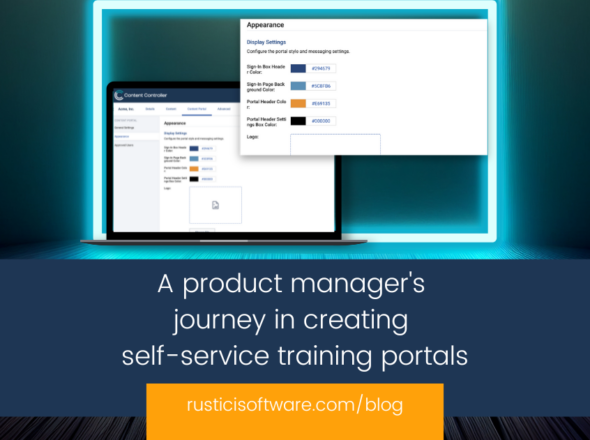I like building stuff. A couple of years ago I got on a cutting board kick. Christmas, birthdays, house-warming, whatever the occasion, you can bet your gift from me would be a handmade cutting board. I didn’t just make the cutting board either… I felt responsible for its fate. For the lifetime of the cutting board, rest assured I would tell you how to wash it, how to oil it, how to store it, and even which direction to cut on it to ensure maximum longevity. Obsessive some might call it, but I was just invested. I had made this thing. I put time, energy, and even a bit of money into producing it. The last thing I wanted was for it to be misused, mistreated, or underutilized. Okay, so maybe it was obsessive, but I have to believe I am not the only one that’s felt this way.
Organizations actually face this problem every day with their product training content. They are investing time, money, and resources towards developing training for their products and, with everything that goes into a product—the R&D, production, distribution, and marketing, just to name a few—the last thing they want is employees and consumers alike to be misinformed or inadequately trained. This is a particularly complex issue when product training needs to occur amongst vendors, resellers, and other channel partners. At this point, training content goes beyond employee growth and performance, and begins to contribute to the integrity of a brand itself.
Valvoline, one of the world’s leading suppliers of premium branded lubricants and automotive services, approached us with an increasingly familiar scenario. With its extensive network of instant oil change centers as well as third-party resellers such as car dealerships, auto-parts retailers, and independent mechanics, Valvoline’s Global Learning Solutions team needed an effective way to distribute their training content to these partners’ LMSs while still retaining control and visibility. This extended enterprise model of training is a rising trend as organizations see the value and the necessity in pushing product knowledge beyond their four walls.
Content Controller was the natural choice for Valvoline. With Content Controller, Valvoline can centralize all of its content, distribute it to appropriate channel partners, and capture the learner data they need to tie training back to sales performance and customer satisfaction. Content Controller has also made versioning easier than ever for the Valvoline team. The need to update a course can arise from something as simple as a label on the packaging of a product changing. In the past, Valvoline had to update the course and redistribute it to all channel partners, but without any sort of process in place, there was no guarantee that the new version would be added to the customer’s system. Versioning a course in Content Controller eliminates the worry and removes the variables.
With the help of Content Controller, Valvoline can rest easy knowing that employees and partners are receiving not only the best training content but the right training content, and that consumers are receiving outstanding customer service and sales. If you’d like to know more about Valvoline’s successful content distribution efforts, read the full case study here.


